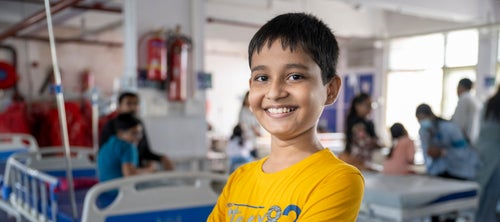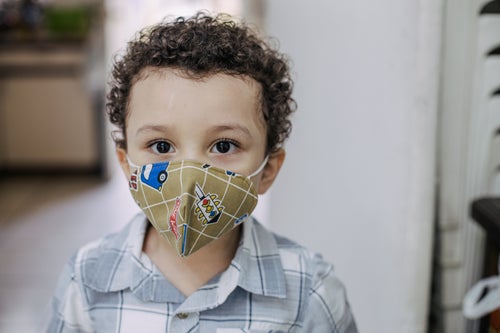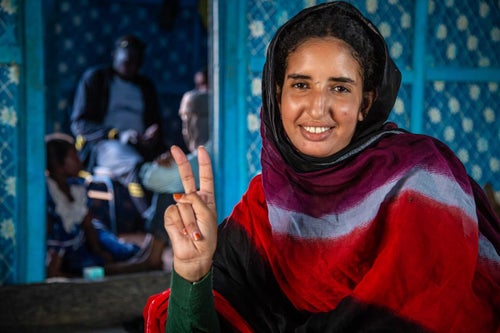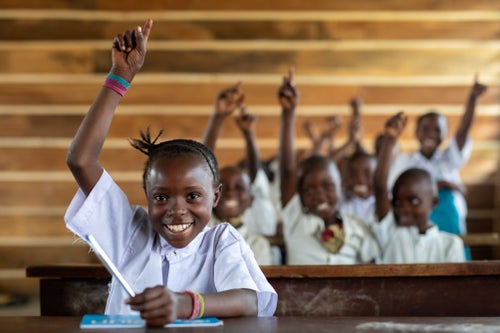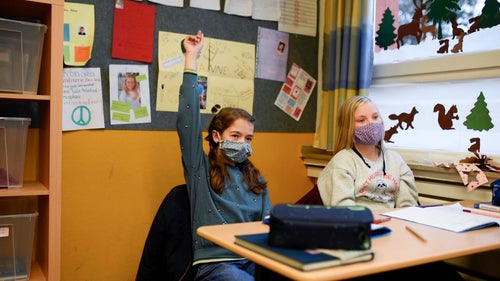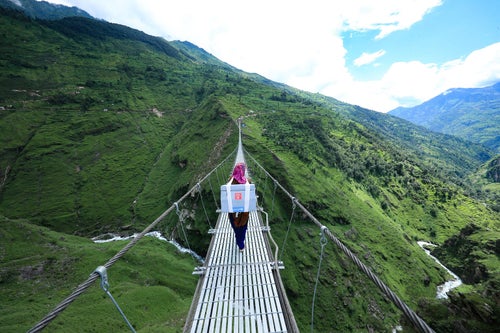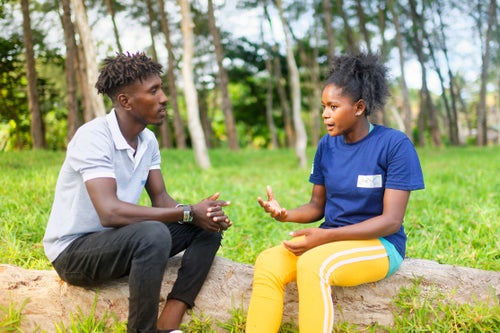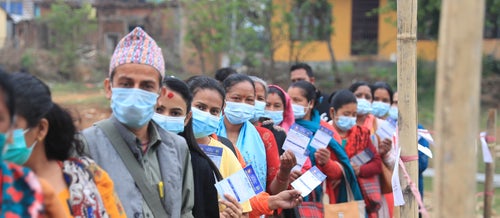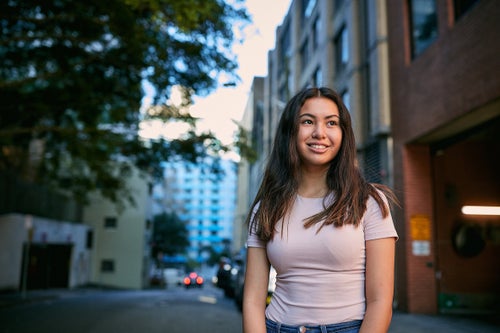UNICEF worker, Diana Valcarcel, gives an insight into solidarity during Spain's coronavirus lockdown.
Time passes so strangely during a lockdown. Looking back, I had to check my calendar to see when it all happened.
On 10 March, UNICEF Spain’s Executive Director sent an announcement to all staff laying out an Action and Contingency Plan facing COVID-19 and its new measures to protect staff. No more big meetings. All trips cancelled. Stronger hygiene measures in the office. Cancel all upcoming events.
Added to that, it was announced that parents could start working from home, so they could take care of their children. The Regional Government in Madrid had announced the previous day that all schools and universities were to close, and that all workers with a medical risk profile should work from home. I fit that profile, so on Wednesday 11 March, I started my confinement.
Everything is going fast, too fast.
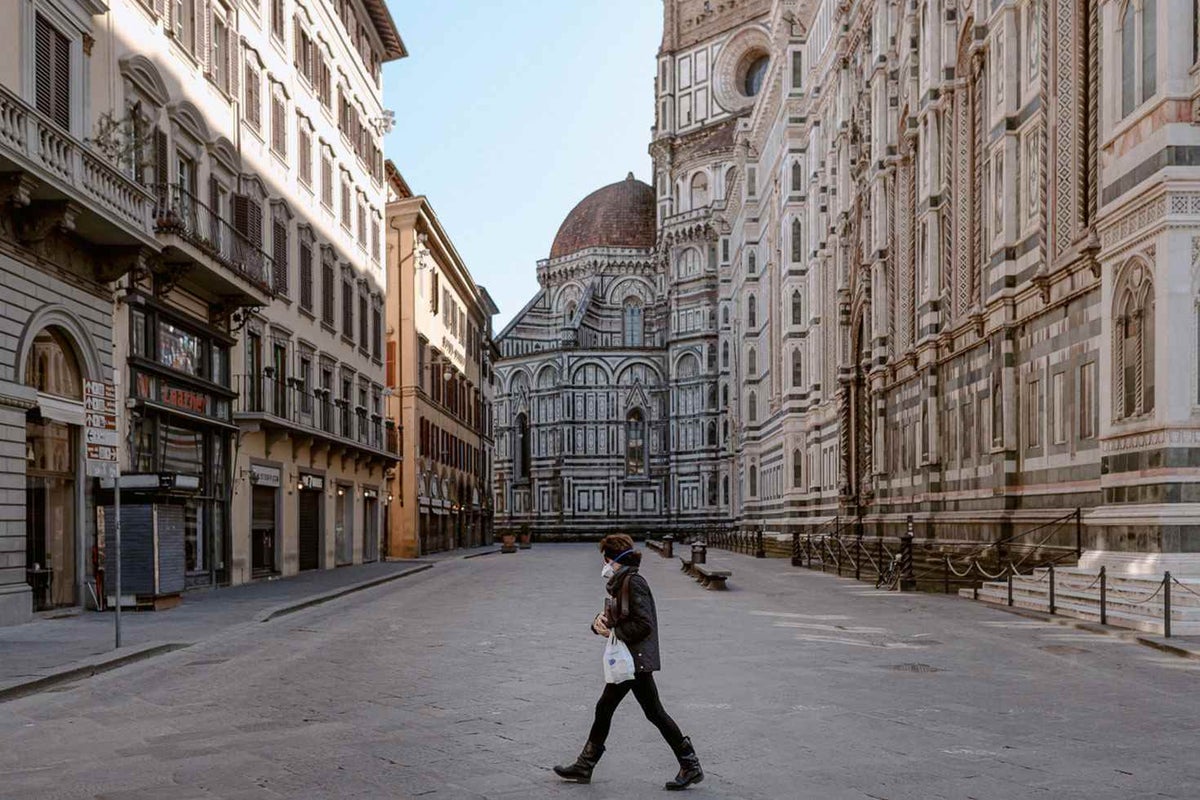
"Normally when he sees me, he touches my cheeks with his tiny hands and I melt."
That same Wednesday, you just didn’t know what might happen next, so I went to visit my nephew, León, in the afternoon. León is seven-months-old and since he was born, I must admit I’ve been besotted with this little creature.
That day, I sang him his favourite songs. I made my usual funny noises and faces, and I gave him a new banana-shaped teether, as his teeth were coming in. But I didn’t touch him. I didn’t kiss or hug him. I was too scared of the mere possibility of infecting him. It was difficult.
Normally when he sees me, he touches my cheeks with his tiny hands and I melt. I normally end up kissing him back so much he starts complaining. How I wished my visit on 11 March could have been like that.
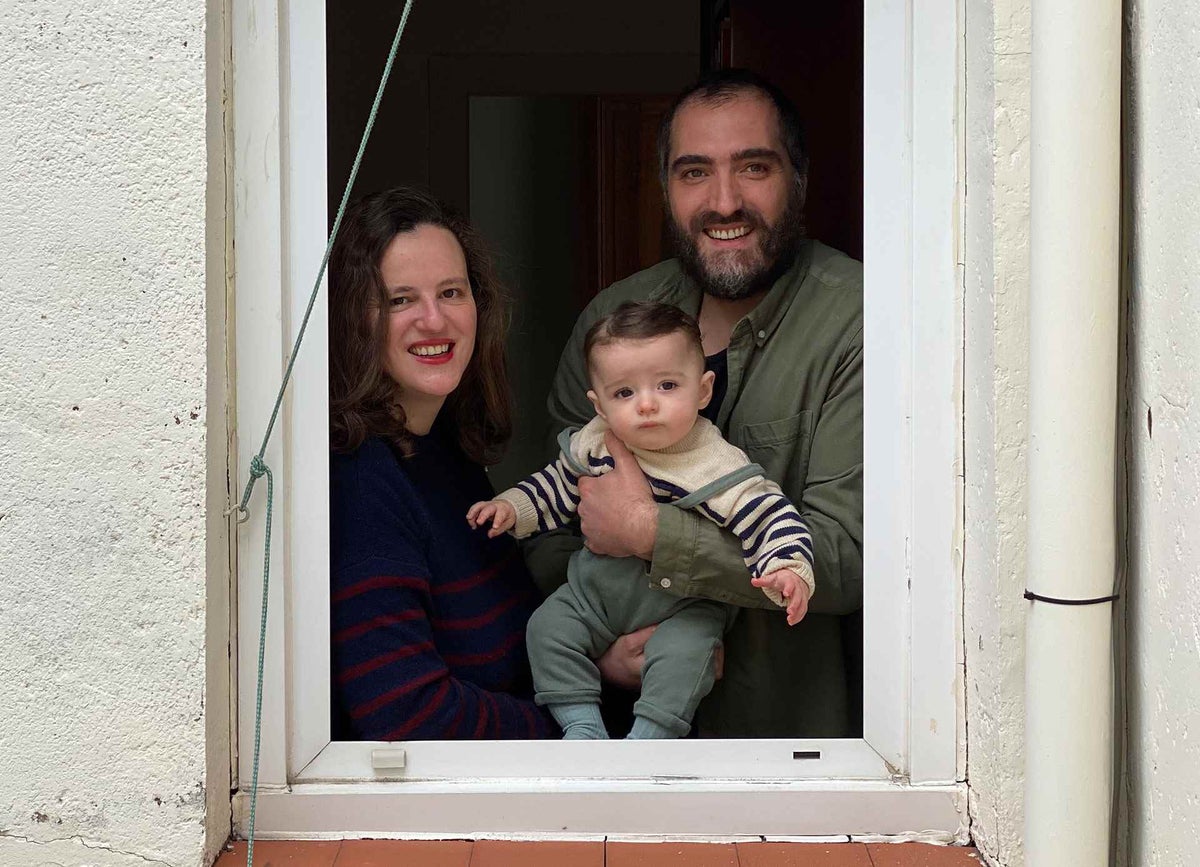
On the 12th, we received a second announcement and all staff started working from home. On the night of the 14th, our Prime Minister announced a State of Alert for the whole of Spain.
Everything is going fast, too fast.
During the first days of the lockdown, you move between states of scepticism and feeling you are part of a fiction movie. You believe you’ll wake up one day and tell everyone about the strange dream you had about being stuck in a global pandemic.
But everything is real.
I have worked for UNICEF for the past 10 years, and I believe that all of us, as staff of this big organization, are familiar with emergencies, disasters and crises. Some of us have lived in the epicentre of them. For others, we are further away, but we are very much involved.
We’re emotionally connected and work against the clock to support children in whatever way we can. We have all learned from children and families what resilience means. Working at UNICEF might change how we’re all dealing with the current moment.
Every day, we’re close to the immense suffering of thousands of children living in Syria, South Sudan, DRC, Yemen – just to mention a few. Places that are hell for children.
This empathy, this knowledge, our daily struggle, makes us face, in my opinion, this pandemic in a different way. We know about suffering and we work to alleviate it.
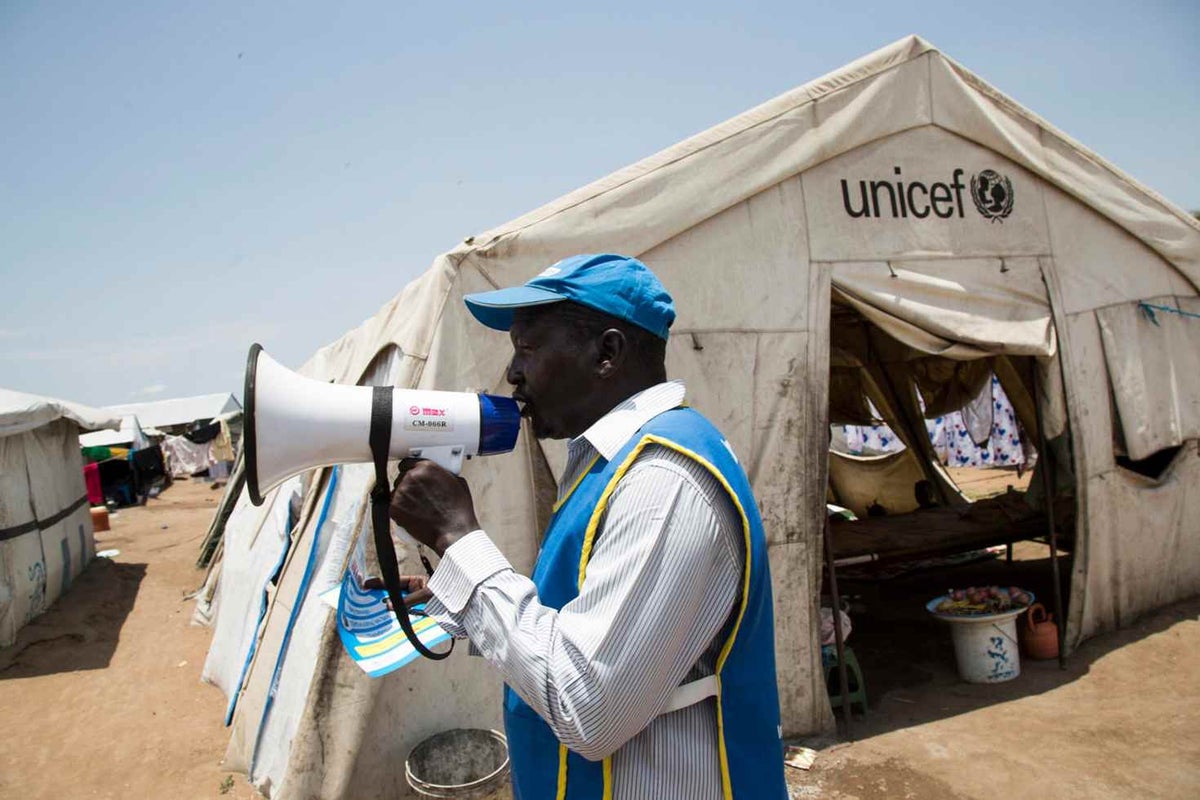
But for a European like me, emergencies have hit countries within a six-hour flight from home. Now it’s our turn, and we need to stand up and face this moment. For me, this means, as a citizen, being responsible and strictly following all the measures that our government is asking of us to stop the spread of the virus.
Secondly, as staff of a humanitarian and development organization, this means working even harder for the most vulnerable. Those who are near, and those who are far away. Today, the most vulnerable are my neighbours.
We’re very close and many of their relatives have been infected or have died from COVID-19. All my colleagues have relatives and loved ones that are severely ill.
When you see it so up close, you just can’t stop thinking about those in impoverished countries with few or no medical services.
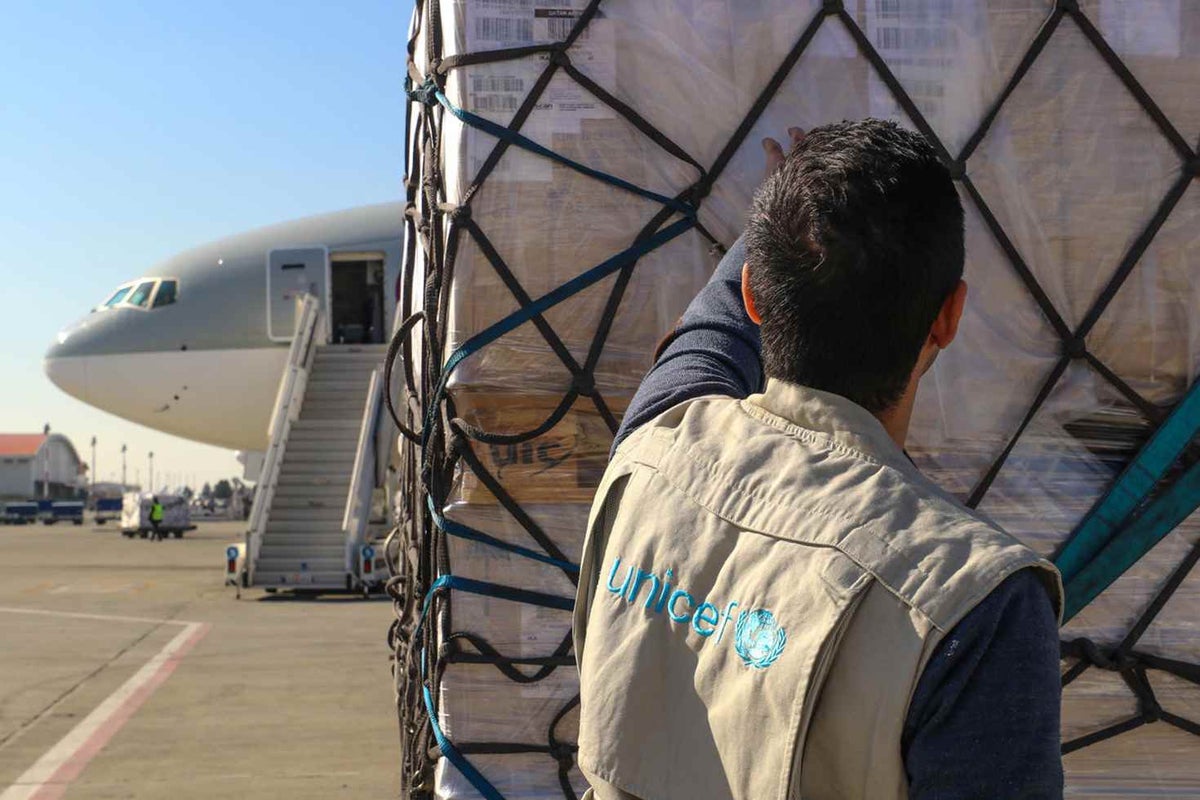
Since I started working from home, I’ve followed a daily routine. I have read a lot about the impact on mental health that a quarantine can have. I have prepared myself as best I can – trying to maintain a good physical and mental balance.
Once I finish work and my nieces are done with their home schooling, I have ‘imposed’ a daily hour of exercise for us all. We have a lot of fun and it makes us feel much better.
Another routine is video calling my nephew León and his parents in the afternoon. Every time I switch on my camera and call his name, he smiles with his toothless mouth and puts his hand out to the screen, as if wanting to touch my face as he usually does.
I still sing him his favourite songs. He gets all excited and his legs flail with delight.
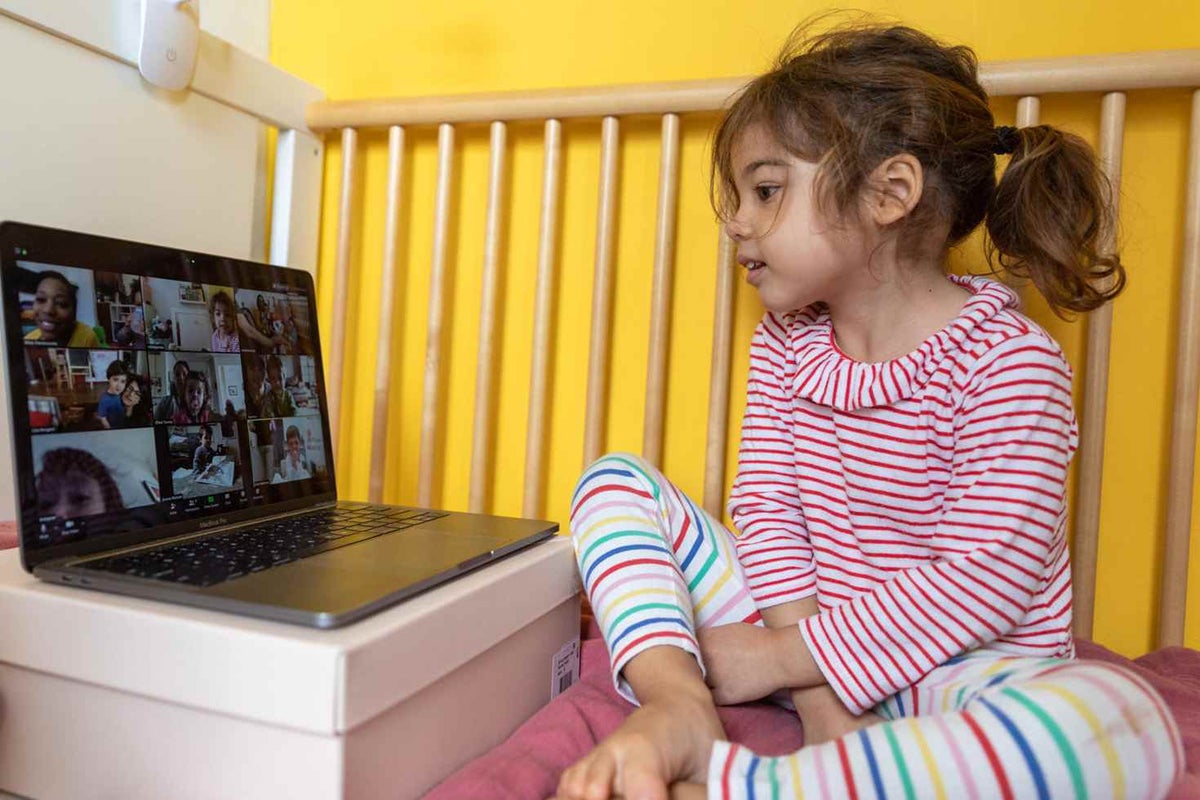
León and his parents live in an apartment in the centre of Madrid. They share a common interior patio with their neighbours. Every evening, since the lockdown started, Leon’s neighbours have put on a little puppet show just for him from their opposite apartment.
From their window to his window, they tell him a different story every day. León is completely captivated. We human beings are extraordinary. These days, I am witnessing beautiful gestures of solidarity and compassion.
In difficult times – and I’ve seen this myself working in the field in Haiti after the earthquake and in the Philippines in the aftermath of Typhoon Haiyan – we show our best selves. Yes, some say we also show our worst, but what sticks with me is the good.
The nightly show of Leon’s neighbours is proof of this. We will overcome this pandemic together. Everything is going to be all right.
And León will show just how resilient children can be.
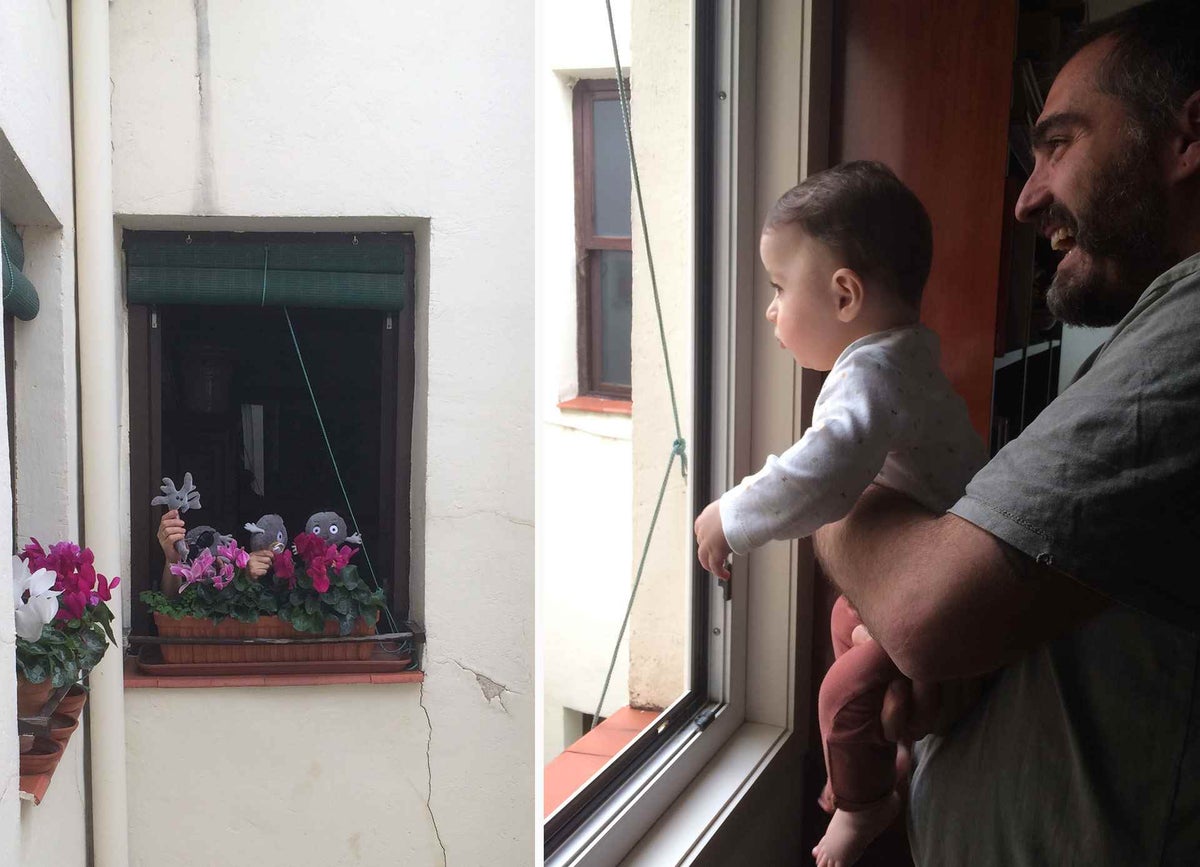
This article was originally published in Planeta Futuro/El País.
Related articles
Stay up-to-date on UNICEF's work in Australia and around the world





